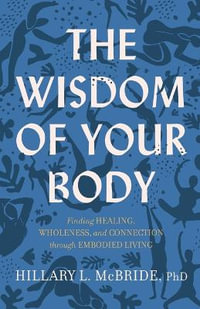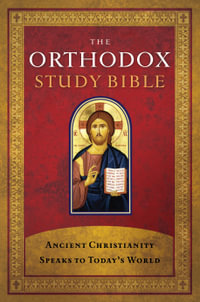Synopsis: For many Americans, Christian missionary efforts have usually involved distant and exotic places. Sometimes, however, we can learn more about missions and interreligious engagement by looking in our own backyard. This collection of essays deriving from a consultation on missionary history and attitudes in colonial Jamestown, Virginia, explores long-standing assumptions related to Christian mission by listening to Native American voices. What were the ideologies and theologies that motivated early Virginia colonists? How did certain understandings of mission and church provide support and legitimacy for invasion and exploitation? What were, and are, the responses of indigenous populations, and how should Christian mission to Native Americans continue in light of this history? This book addresses these still very relevant questions and explores ways in which new understandings of Christian mission are needed in the expanding religious and cultural diversity of the twenty-first century.
Contents Acknowledgments / vii Introduction: Using Jamestown in 1607 to Stimulate Questions about Christian Mission in 2007-- Barbara Brown Zikmund / 1 Part One: Re-Visiting Native-American Beliefs and Practices Chapter 1: The Romance and Tragedy of Christian Mission among American Indians -- Tink Tinker / 13 Chapter 2: A Failure to Communicate: How Christian Missionary Assumptions Ignore Binary Patterns of Thinking within Native-American Communities -- Barbara Alice Mann / 29 Part Two: Re-Discovering the Concept of Discovery in the Christian Mission to Native America Chapter 3: Christianity, American Indians, and the Doctrine of Discovery -- Robert J. Miller / 51 Chapter 4: Colonial Virginia Mission Attitudes toward Native Peoples and African-American Slaves -- Edward L. Bond / 69 Part Three: Re-Engaging the Christian Mission to Native America Chapter 5: Living in Transition, Embracing Community, and Envisioning God's Mission as Trinitarian Mutuality: Reflections from a Native-American Follower of Jesus -- Richard Twiss / 93 Chapter 6: Salvation History and the Mission of God: Implications for the Mission of the Church among Native Americans -- Richard E. Waldrop and J. L.
Corky Alexander Jr. / 109 Part Four: Re-Thinking Theology of Mission in a Multifaith World Chapter 7: Jamestown and the Future of Mission: Mending Creation and Claiming Full Humanity in Interreligious Partnership -- Shanta Premawardhana / 127 Chapter 8: Moving beyond Christian Imperialism to Mission as Reconciliation with all Creation -- William R. Burrows / 145 Conclusion: The Missiology of Jamestown -- 1607--2007 and Beyond: Toward a Postcolonial Theology of Mission in North America -- Amos Yong / 157 Contributors / 169 Author Index / 171 Subject Index / 175 Endorsements: "Amos Yong and Barbara Brown Zikmund have made a critical intervention in the theological and ethical absence of Indigenous peoples within Christian mission. Their groundbreaking work opens up a fruitful dialogue for how to rethink missions within the context of historical and continuing colonization of Native peoples. They offer no simple or uniform solutions but provide a space for critical analysis and intellectual exchange. This book is a must read." -Andrea Smith U.S. Coordinator, Ecumenical Association of Third World Theologians Editor Biography: Amos Yong is J.
Rodman Williams Professor of Theology at Regent University School of Divinity, Virginia Beach, Virginia. He has authored or edited ten books, including Hospitality and the Other (2008). Barbara Brown Zikmund is a retired historian living in Washington, DC. She is the former chair of the Interfaith Relations Commission of the National Council of Churches and served as President of Hartford Seminary 1990-2000.
Industry Reviews
""Amos Yong and Barbara Brown Zikmund have made a critical intervention in the theological and ethical absence of Indigenous peoples within Christian mission. Their groundbreaking work opens up a fruitful dialogue for how to rethink missions within the context of historical and continuing colonization of Native peoples. They offer no simple or uniform solutions but provide a space for critical analysis and intellectual exchange. This book is a must read.""
-Andrea Smith
U.S. Coordinator, Ecumenical Association of Third World Theologians
""This is a profoundly disturbing yet constructive book. It presents a devastating critique of the church's mission among Native Americans in the last 400 years, but offers as well a sober hope. If mission is to be engaged in at all, it must be done with profound respect, dialogue, and repentance--the true way of Jesus and his Spirit.""
-Stephen Bevans
Professor of Mission and Culture, Catholic Theological Union
""Most commentators on Christian mission who claim to use critical thinking in their assessments forget the 'thinking' and are just 'critical.' The authors of these essays 'think' too. One may not always agree with their assessments in toto, but the ideas in this book need to be taken seriously by Christians interested in the growth of the church in the twenty-first century.""
-Terry C. Muck
Dean, E. Stanley Jones School of World Mission and Evangelism
Asbury Theological Seminary

![NRSV Catholic Bible Gift Edition [Teal] : Holy Bible - Thomas Nelson](https://www.booktopia.com.au/covers/200/9780785230410/9912/nrsv-catholic-bible-gift-edition-teal-.jpg)
![NRSV Catholic Bible Gift Edition [White] : Holy Bible - Thomas Nelson](https://www.booktopia.com.au/covers/200/9780785230380/2211/nrsv-catholic-bible-gift-edition-white-.jpg)


















![A Return to Love : Reflections on the Principles of a Course in Miracles [Thorsons Classics edition] - Marianne Williamson](https://www.booktopia.com.au/covers/200/9780722532997/null/a-return-to-love.jpg)


